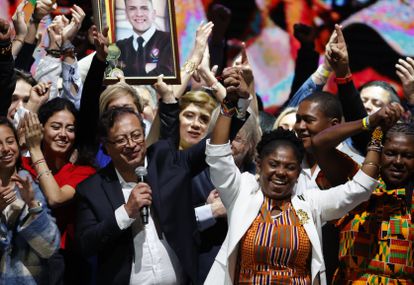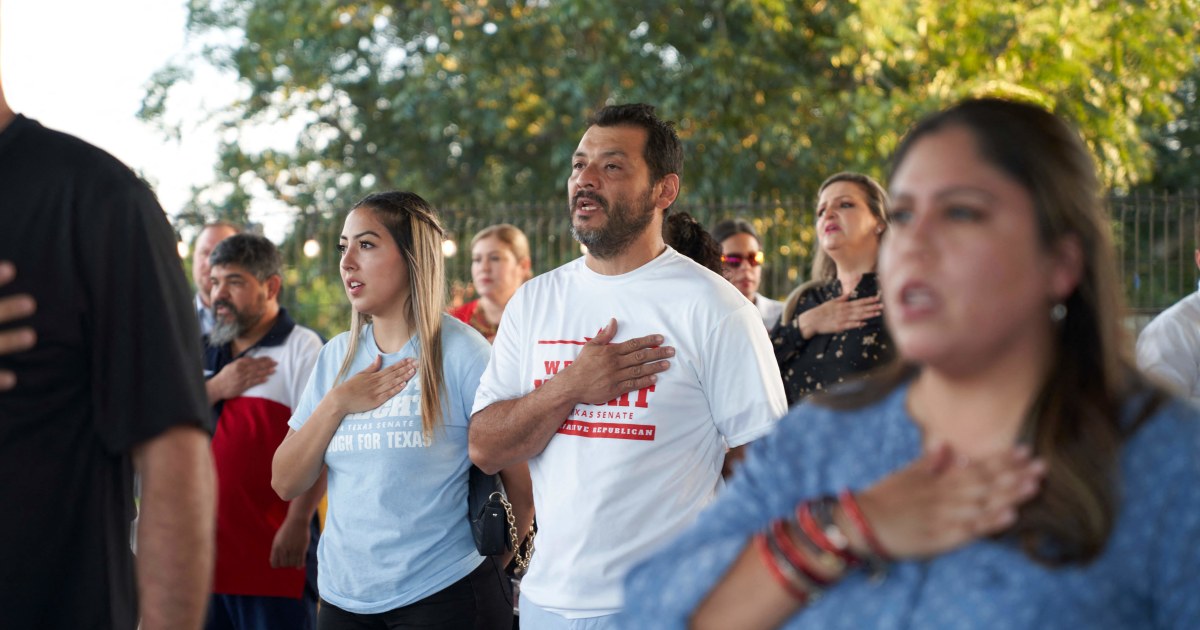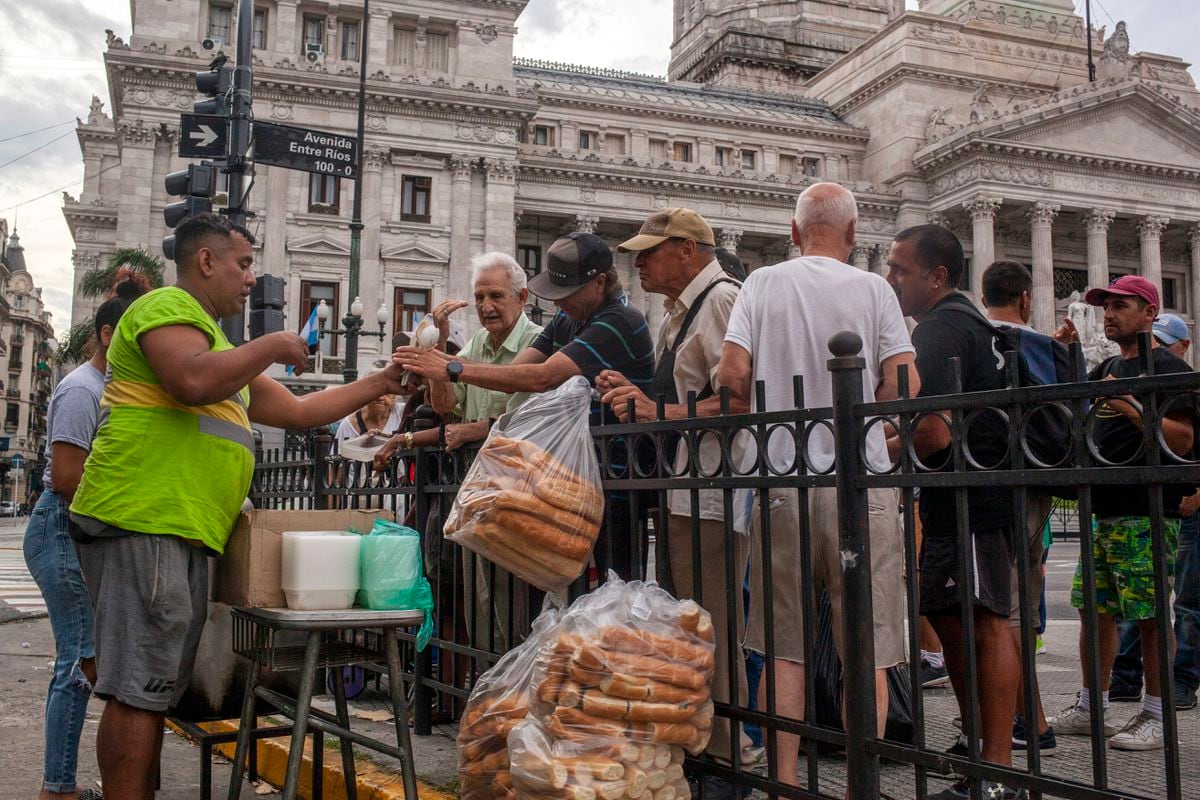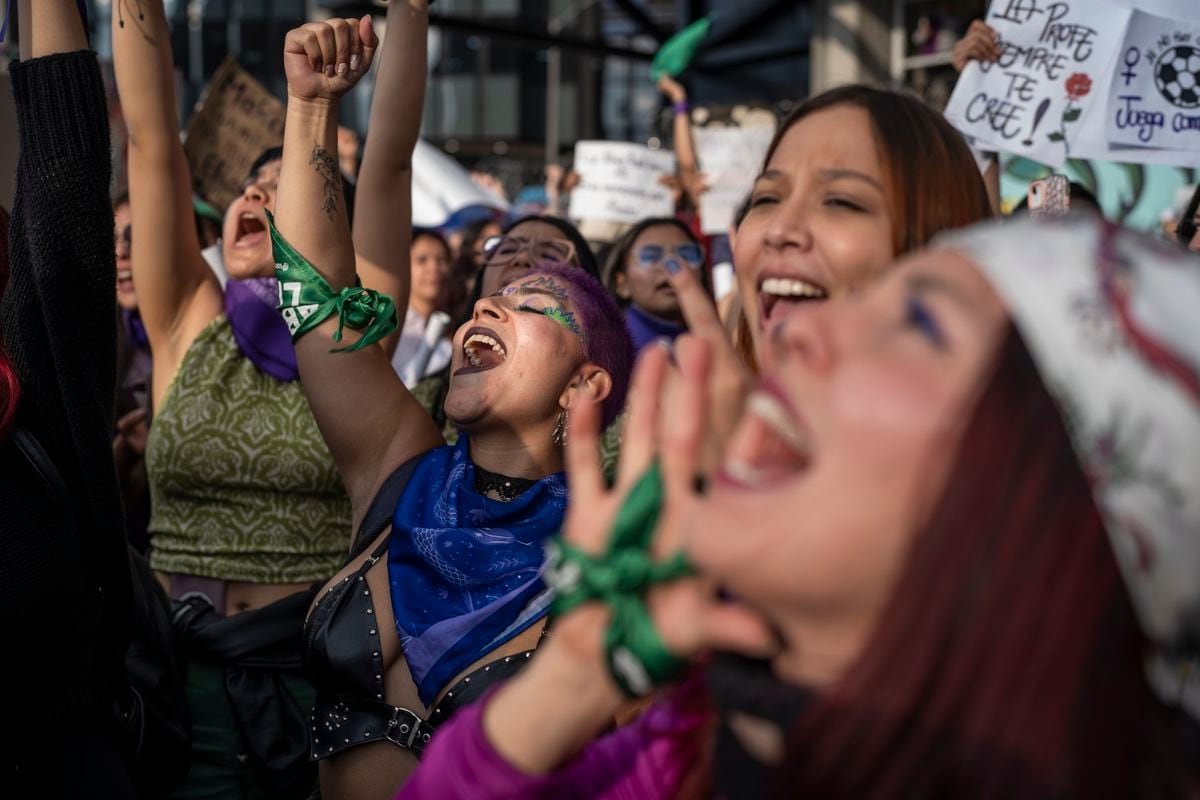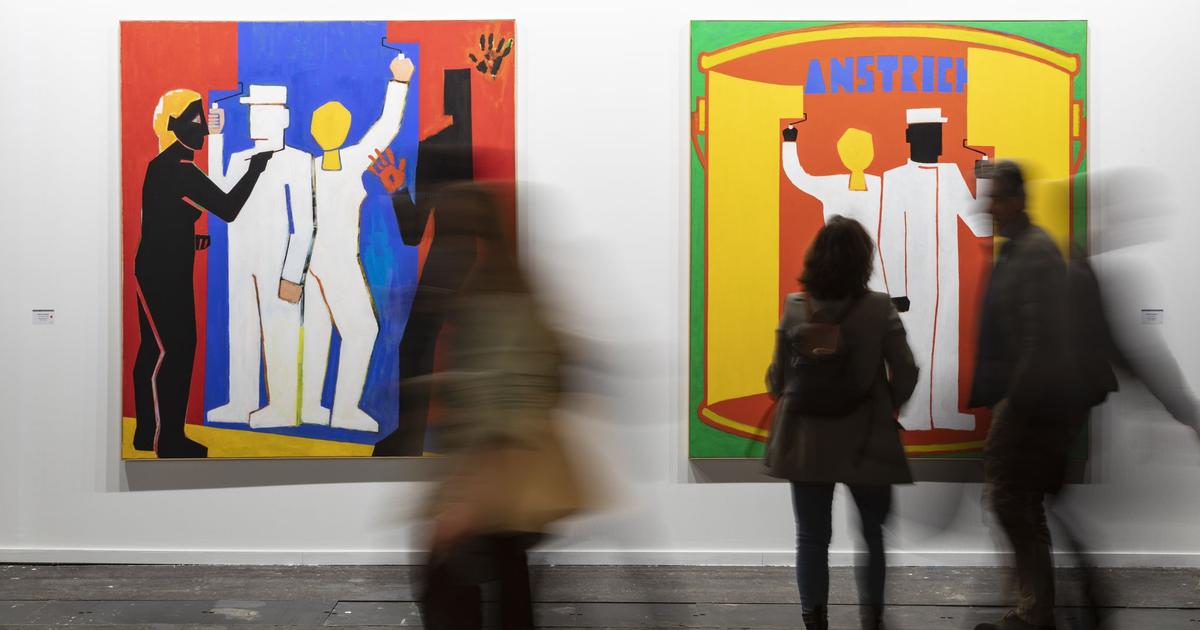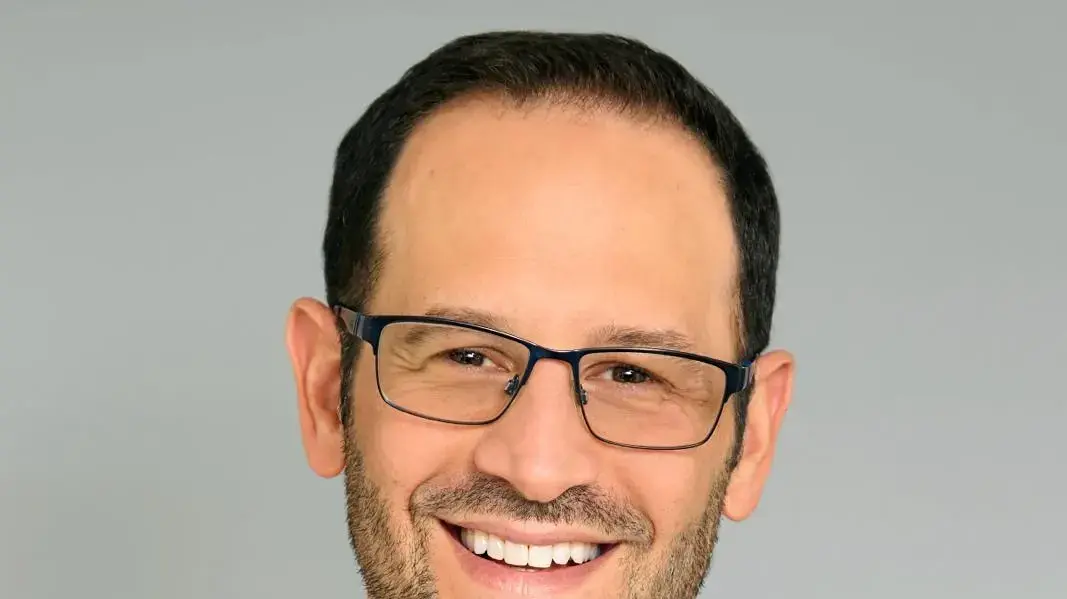There are those that returned to power, such as the Argentine, or the Bolivian and the Honduran, who recovered from two blows, now tending to moderate themselves at the cost of not a few internal problems.
Those who never imagined that they would achieve it, like the Chilean, but above all the Colombian, both heirs of annihilated leaders.
Also gibberish that proclaim themselves progressive and that are full of buts along the way, such as that of the Peruvian master Pedro Castillo or that of the Mexican totem Andrés Manuel López Obrador.
An amalgamation, these leftists, who have dressed Latin America in red like never before.
More information
Where did the 2.7 million new votes for Gustavo Petro come from?
Waiting for what happens at the end of the year in Brazil, where Lula may also return to power, the other five strongest economies in the region - Mexico, Argentina, Chile, Colombia and Peru - are governed, or will be from now on. August 7 with the inauguration of Gustavo Petro, by presidents who are celebrated on the left.
The advance of progressive governments goes back to that first wave at the beginning of the century, when, championed by an unstoppable Hugo Chávez and the eternal shadow of Fidel Castro, several countries aligned themselves around what was called 21st century socialism.
Illustration by Sr García with images from Getty Images.
The reasons that have driven the latest progressive victories are also found, paradoxically, in the differences they maintain with the first wave.
If then the price of raw materials and the oil boom were decisive in sustaining those governments, now the engine of change arises from the deterioration of social indicators in almost the entire region, which drove the social outbreaks of 2019 and increased with the pandemic.
Contenders have also contributed to recent wins.
When not openly far-right, they have led to radicalize the more traditional rights and to see the left, in a certain way, as part of the
establishment
, points out the sociologist Luciana Jáuregui, who cites the example of José Antonio Kast, who made order and the defense of the family his campaign in Chile;
Keiko Fujimori, daughter of the old autocrat, in Peru;
the most recent case of the demagogic businessman Rodolfo Hernández in Colombia or the rise of the right-wing deputy Javier Milei in Argentina.
In the face of far-right formations, the left was seen almost as part of the
establishment.
Another of the great differences is that none of those leaders of yesteryear lives or governs, and popular mobilization has given way to electoral victories in which, in many cases, broad consensus has been necessary, as has been seen in Chile and Colombia.
Even Lula, the only one who would survive from then, has sought an important ally in the center such as Geraldo Alckmin, a center-right heavyweight whom he defeated in the 2006 presidential elections. “There are no longer the historical leaders of the crusade anti-neoliberal movement of the 1990s that connected the so-called socialism of the 21st century with real Cuban-style socialism”, argues the historian of the Colegio de México Rafael Rojas, referring to the Castro brothers, Hugo Chávez or Evo Morales;
“The new governments and leaders of the left, such as López Obrador, Fernández, Petro or Boric,
they are committed to preserving the democratic constitutional framework or to moving away from re-election.
The greater commitment to democracy in this new wave of the left can help contain the advance of authoritarianism, which has one of its main flanks in the Bolivarian pole”.
If there is a watershed between the agendas of the beginning of the century and the current ones, it resides in the feminist and environmental demands, with Argentina, Chile and Colombia at the forefront, and the contrast of Mexico, where the Government does not keep pace with the push to the groups of women who cry out against the femicide hell.
To this, the Argentine philosopher Luciana Cadahia adds “the historical debt with the black movements”.
In this sense, Rojas recalls that the rights of indigenous peoples where the least progress is in the Bolivarian zone, which is promoted as "radical" or "socialist", except perhaps Bolivia.
In the search for a leader who unites all the forces in the region, Gustavo Petro emerges.
Trying to explain the entire amalgamation of progressive forces as a common entity is chimerical.
There is perhaps more dissonance than encounters in the proposals.
Even more so in economic matters, as Rojas points out, where the plans of Andrés Manuel López Obrador are practically antagonistic to those of Gustavo Petro, someone in favor of ending extractivism in energy matters or implementing a progressive tax reform.
How the progressive forces will relate to each other and to the rest of the world is also somewhat uncertain.
"The greatest tension that we will see in the coming years will be, once again, between the realistic and multilateral vision of international relations promoted by progressivism and the geopolitical strategy of the Bolivarian pole," summarizes the academic from the Colegio de México.
For this Cuban historian,
No victory alone makes a cycle.
Nothing is further from reality for Manuel Canelas, who was part of the third government of Evo Morales.
"To define a cycle, the number of electoral victories is not a sufficient condition," settles the former Minister of Communication of Bolivia, now based in Spain, who recalls the triumphs -not all at the polls- of the right between 2015 and 2017, "and That is not why there was talk of a conservative cycle.”
And he goes deeper: “The idea of a cycle is more closely related to the construction of hegemony.
One can win an election and govern without being hegemonic, so it can last less”.
Along these same lines, Jáuregui elaborates: “Ideological consensus and political alignments are being reconfigured with uncertain results.
The left, unlike the first progressive wave,
it assumes a defensive character aimed at preserving or promoting moderate changes that are promoted from the State rather than from a popular mobilization.
If one looks at the recent processes, the victories of the leftist or center-left governments do not translate into political and ideological dominance, but into politically and economically constrained governments, with difficulties in promoting a policy of transformation and even in guaranteeing their own cohesion. internal”.
President-elect Gustavo Petro celebrates, together with Vice President Francia Márquez, the victory of the elections last Sunday. Mauricio Dueñas Castaneda (EFE)
The management of the relationship with Cuba, Nicaragua and Venezuela, especially with the South American country, is going to be a headache for the new rulers.
All, including Petro and Boric, have distanced themselves from the authoritarian drift and human rights violations by Nicolás Maduro despite the fact that not so long ago they celebrated Chavismo.
However, it would be naive to think that there will be no changes in the relationship, for example, of Colombia or Chile with Venezuela, to the extent that millions of Venezuelans have gone into exile in both countries.
Petro has already assured that one of the first measures that he will promote will be the reopening of the border with Venezuela.
The search for a leader who unites all the forces seems inevitable.
The figure of the Colombian emerges at the regional level with more force if possible than the enthusiasm generated by the irruption of Boric or the leading role that López Obrador has sought in recent months.
The philosopher Luciana Cadahia has no doubt that the triumph of the Historical Pact places Colombia as the new regional leader, to the extent that it can articulate most of the region, both on the Atlantic and Pacific sides.
And she points to three historical debts that Colombian progressivism will place at the center of the debate: “The energy transition from the extractive fossil economy to a new sustainable model;
the central role of the Caribbean and of Afro-Americans, indigenous people and popular urban sectors in the political contest,
Climate change is the new axis on which Latin America's relationship with the United States will revolve.
How the relationship with the great power will be articulated will surely mark a large part of the agendas between the different forces.
Joe Biden suffered a setback at the last Summit of the Americas, in which he barely achieved a series of generic agreements and was capitalized by the rudeness of López Obrador, who did not attend because Cuba, Venezuela and Nicaragua were not invited.
Mexico has insisted on the need to build a new path in the relationship between Latin America and the United States, which almost has as a
sine qua non
condition the loss of prominence of the Organization of American States (OAS) and its Secretary General, Luis Almagro, to which the majority of progressive forces turn their backs.
It is in one of Joe Biden's big bets, however, where the new axis on which the relationship between Latin America and the United States will turn may lie.
The fight against climate change is not among López Obrador's priorities, but it is among Petro's.
It is not trivial, then, the quick congratulations that the Colombian received from Biden, just 48 hours after his victory.
From the fight for the environment, both want to reverse the erratic drug trafficking policies of recent decades.
A recomposition of the United States relationship with Latin America through the environment would suppose the greatest geopolitical change in the region in the century.
Sign up for the weekly Ideas newsletter
here .
50% off
Exclusive content for subscribers
read without limits
subscribe
I'm already a subscriber

